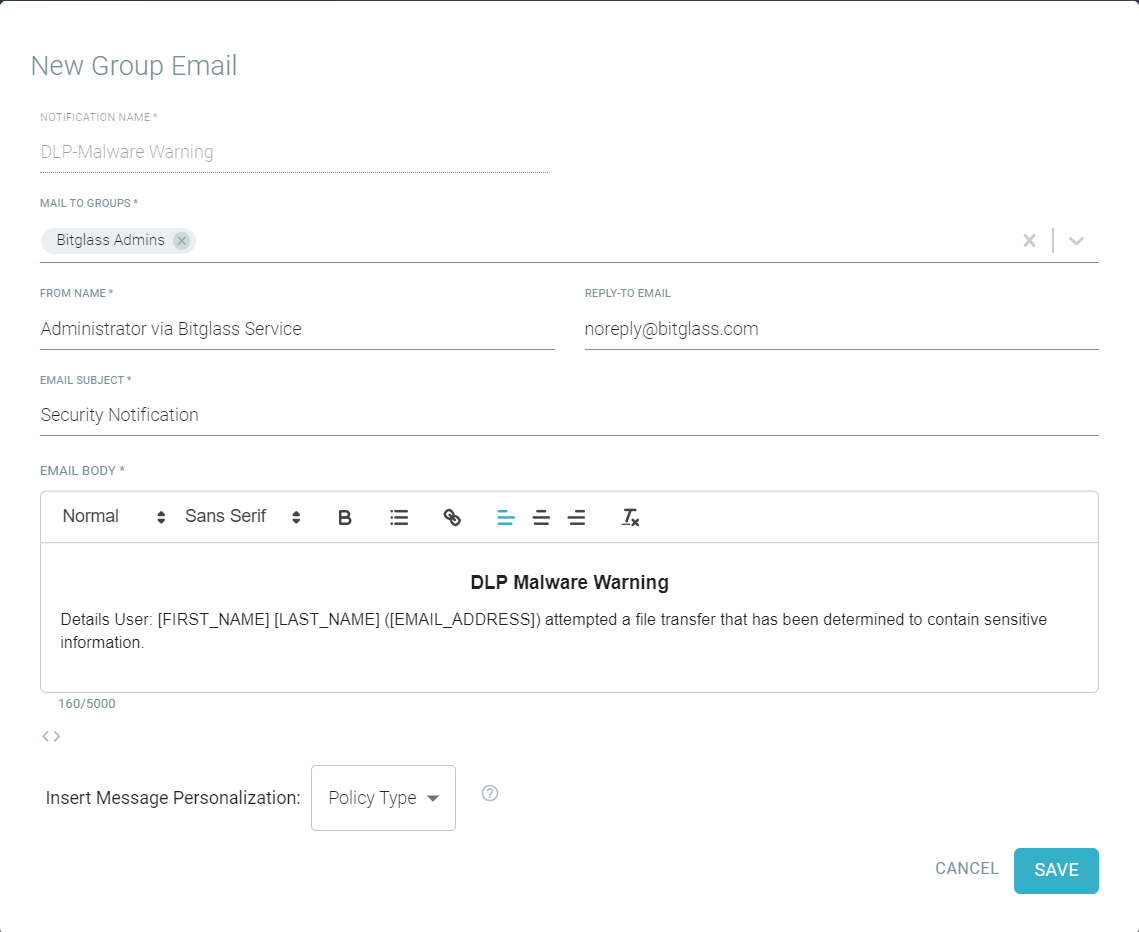Creating a new group email notification
Admins can create custom group email notification so that it can used while creating a policy.
Steps
-
Navigate to Protect > Notifications > Group Email.
Group Email page opens with all the existing group email notifications.
-
To create a group email notification, click the green plus icon.
New Group Email dialog opens.

- Enter the Notification Name that helps you in identifying it.
- Select the applicable group(s) to whom an email notification to be sent when the object is used from the Mail To Groups drop-down list.
- Enter the From Name that to be displayed when the user views who the email notification is from.
-
Enter the Reply-To Email address you wish to be listed as the reply-to.
If left blank, it will be no-reply@bitglass.com.
- Enter the Email Subject line that appears on the email.
-
Enter Email Body of the email notification.
You can:
-
Use the rich text editor to format and style the content and to add links and email addresses in the notification.
You can also click
 icon to enter notification content using HTML tags. To switch back to rich text editor, click
icon to enter notification content using HTML tags. To switch back to rich text editor, click  icon.
icon. - Insert various variables to the body of the message.
-
-
To insert a variable to the body of the email notification, select the appropriate option from the Insert Message Personalization drop-down list and click
add icon next to it.
Options that you can add to the body of the email are based on variables (Message Personalization) from the policy trigger (for example, application, pattern name, username, IP, etc).Note: When using message personalization variables, if the variable you are using is empty, then the message will display a blank field. For example, if you select the variable IP Address but there is no available IP to display, then the message will show as the title of the variable with no value displayed IP Address:
- To create the notification, click Save.